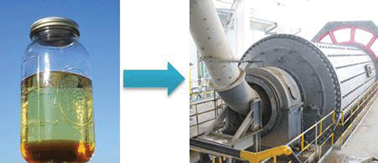Abstract
Concrete production is a large scale process that involves high energy consumption. In order to increase the sustainability of this process, the reduction of energy input is necessary. Bio-glycerol was demonstrated to be a highly efficient renewable-based additive in the grinding process for concrete production and helped reduce energy costs and improve the quality of the resulting product. In order to understand its excellent aiding properties, the interaction of


 Please wait while we load your content...
Please wait while we load your content...